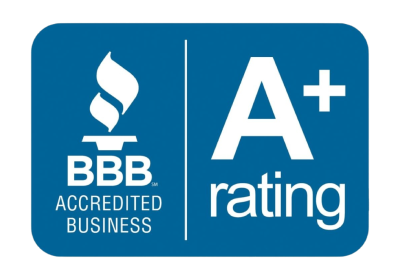Elevating Your Brand: Strategic Marketing for the Modern Event Planner
Written by: Marcelo Flores
Navigating the competitive world of event planning requires more than just exceptional decoration skills; it demands a robust promotional strategy to make your mark. This detailed guide is your roadmap to effectively market your event planning business. From understanding your target audience to mastering the power of digital marketing, we provide you with actionable tips to enhance your visibility and appeal to your ideal clientele.
Table of Contents
- Understanding Your Target Market
- Developing a Strong Online Presence
- Networking and Building Partnerships
- Utilizing Visual Marketing
- Embracing Content Marketing
- Leveraging Customer Testimonials and Reviews
- Exploring Paid Advertising Options
- Offering Promotions and Discounts
1. Understanding Your Target Market

The foundation of any successful marketing strategy is a deep understanding of your target market. Knowing who your ideal clients are, what they value, and how they make decisions is crucial for tailoring your promotional efforts effectively.
Identifying Your Ideal Client (Buyer Persona)
Begin by creating a detailed profile of your ideal client. Consider factors such as:
- Demographics: Age, gender, income level, location.
- Psychographics: Interests, lifestyle, values.
- Event Types: Weddings, corporate events, private parties.
- Decision-Making Factors: What drives their choices? Price, quality, uniqueness?
Understanding these aspects will help you create marketing messages that resonate with your target audience.
Tailoring Your Message
Once you have a clear picture of your ideal client, tailor your marketing messages to address their specific needs and desires. For instance, if you’re targeting luxury weddings, emphasize your attention to detail, exclusivity, and high-end services. If your focus is on corporate events, highlight your efficiency, professionalism, and ability to create a productive environment.
Market Research
Conduct market research to validate your assumptions about your target market. This can involve:
- Surveys and Questionnaires: Directly ask potential clients about their preferences and needs.
- Competitor Analysis: Look at how competitors are positioning themselves and what seems to be working for them.
- Industry Trends: Stay updated with the latest trends in event planning and how they align with your target market’s interests.
Adapting to Client Feedback
Be open to adapting your understanding based on client feedback. As you work with different clients, you’ll gain insights that can refine your target market profile. This iterative process ensures that your marketing strategy remains relevant and effective.
2. Developing a Strong Online Presence

Having a strong online presence is essential for promoting your event planning business. Your online platforms are often the first point of contact with potential clients, so it’s important to make a great impression.
Professional Website
Your website is your digital storefront. Ensure it’s professional, easy to navigate, and reflects your brand’s image. Key elements to include:
- Portfolio: Showcase your past events with high-quality images and descriptions.
- Services: Clearly outline the services you offer and what sets you apart.
- Contact Information: Make it easy for potential clients to reach you.
- Testimonials: Include client testimonials to build credibility.
Search Engine Optimization (SEO)
Optimize your website for search engines to increase your visibility online. Use relevant keywords, create quality content, and ensure your site is mobile-friendly. Regularly updating your blog with industry-related articles can also improve your SEO ranking.
Social Media Marketing
Utilize social media platforms like Instagram, Facebook, and Pinterest to connect with potential clients. These platforms are perfect for showcasing your work, sharing client testimonials, and engaging with your audience. Regular posts, stories, and interactive content can keep your audience engaged and interested in your services.
Email Marketing
Build an email list and regularly send out newsletters or updates about your services, special offers, or event planning tips. Email marketing is a great way to keep your business top-of-mind and nurture leads into clients.
Online Advertising
Consider investing in online advertising such as Google Ads or social media ads to reach a wider audience. Target your ads based on demographics, interests, and behaviors to ensure they reach your ideal clients.
3. Networking and Building Partnerships

Networking is a powerful tool for promoting your event planning business. Building strong relationships with other industry professionals can lead to referrals, collaborations, and increased visibility.
Attend Industry Events
Participate in trade shows, conferences, and local business events. These are excellent opportunities to meet potential clients and other event professionals. Networking in person can help establish stronger connections than online interactions alone.
Join Professional Associations
Becoming a member of professional associations related to event planning can provide access to exclusive networking events, educational resources, and industry insights. These associations often have local chapters, making it easier to connect with professionals in your area.
Collaborate With Vendors
Establish relationships with vendors such as caterers, florists, photographers, and venue owners. These partnerships can be mutually beneficial. For instance, you can refer clients to each other or collaborate on styled shoots to showcase your combined services.
Leverage Social Media for Networking
Social media platforms like LinkedIn are great for professional networking. Connect with industry peers, join relevant groups, and engage in discussions to increase your visibility and establish yourself as a knowledgeable professional in the field.
Offer Referral Incentives
Consider setting up a referral program where you offer incentives to clients or vendors who refer new business to you. This can encourage people in your network to actively promote your services.
4. Utilizing Visual Marketing

Visual marketing is a powerful strategy for promoting an event planning business, as it allows potential clients to visually experience what you offer. This approach can be particularly effective on platforms like Instagram, Pinterest, and YouTube, where visual content is king.
Showcase Your Portfolio
Use high-quality images and videos to showcase your past events. This visual portfolio can give potential clients a glimpse of your style, creativity, and the types of events you excel at planning
Create Engaging Visual Content
Develop engaging visual content that tells a story. This could include behind-the-scenes videos, time-lapse videos of event setups, or before-and-after transformations. Such content not only showcases your skills but also engages and entertains your audience.
Leverage Social Media Platforms
Platforms like Instagram and Pinterest are ideal for visual marketing. Regularly post eye-catching photos and videos of your events, and use relevant hashtags to increase your visibility. Engage with your followers by responding to comments and messages.
Utilize Video Marketing
Videos can be a powerful tool to convey the atmosphere and details of the events you plan. Consider creating video testimonials from satisfied clients, event highlight reels, or educational videos with event planning tips.
Invest in Professional Photography
Consider hiring a professional photographer or videographer for your major events. High-quality visuals can significantly enhance your marketing efforts and help your business stand out.
5. Embracing Content Marketing

Content marketing is a powerful way to showcase your expertise and attract potential clients. Share valuable insights, tips, and trends related to event planning through various content formats.
Effective Content Marketing Strategies
- Start a blog on your website covering various aspects of event planning, such as latest trends, planning tips, and success stories. This not only drives traffic to your site but also improves your SEO.
- Create how-to guides, checklists, and infographics that provide practical value to your audience. Share these resources on your social media channels and in email newsletters.
- Use video content to give a behind-the-scenes look at your event planning process, client testimonials, or educational videos with event planning tips.
Utilizing Video Content
- Videos are highly engaging and can effectively convey the atmosphere and details of the events you plan. Consider creating video testimonials from satisfied clients, event highlight reels, or educational videos with event planning tips.
- In the event planning industry, where many decisions are driven by emotions, video content can be particularly impactful. It allows potential clients to emotionally connect with your work, envisioning their own events through your showcased successes.
- Share your videos on platforms like YouTube, Instagram, and Facebook to increase engagement and reach.
Benefits of Content Marketing
- Establishes you as an expert in the event planning industry.
- Drives traffic to your website, improving your online visibility and SEO.
- Engages and educates your audience, building trust and credibility.
- Video content, in particular, helps in creating an emotional connection with your audience, making your services more relatable and desirable.
- Content marketing supports your other marketing efforts, such as SEO and social media engagement, creating a comprehensive promotional strategy.
6. Leveraging Customer Testimonials and Reviews

Positive feedback from satisfied clients is incredibly persuasive. Encourage your clients to leave reviews on platforms like Google, Yelp, and your social media pages.
Collecting and Showcasing Testimonials
- Ask clients for testimonials after successfully completing an event. Feature these testimonials prominently on your website and marketing materials.
- Create case studies or success stories to showcase the impact of your work. This not only builds credibility but also provides potential clients with a clear idea of what you can offer.
Responding to Online Reviews
- Actively monitor and respond to reviews, both positive and negative. Thank clients for their feedback and address any concerns raised in negative reviews professionally.
- Use client feedback as a tool for continuous improvement. Both positive and negative feedback provide valuable insights into your service quality.
Benefits of Customer Testimonials
- Enhances your credibility and trustworthiness.
- Provides social proof to potential clients.
- Helps in decision-making for prospective customers.
7. Exploring Paid Adevrtising Options

Investing in paid advertising can significantly boost your business’s visibility. Platforms like Google Ads and social media ads allow you to target specific demographics and interests.
Effective Paid Advertising Strategies
- Use targeted keywords in Google Ads to appear in relevant search results.
- Create engaging social media ads with compelling visuals and calls to action.
- Experiment with different ad formats and platforms to see what works best for your business.
Measuring Ad Performance
- Regularly track the performance of your ads to understand their effectiveness.
- Adjust your strategies based on analytics and insights to optimize your ad spend.
Benefits of Paid Advertising
- Increases your reach to a broader audience.
- Drives more traffic to your website and social media pages.
- Helps in generating leads and converting them into clients.
8. Offering Promotions and Discounts

Promotions and discounts can be a great way to attract new clients and encourage repeat business. Offer special packages, seasonal discounts, or referral incentives to entice clients.
Ideas for Promotions and Discounts
- Offer a discount for first-time clients.
- Create bundled packages of services at a reduced rate.
- Implement a referral program with incentives for clients who refer new business.
Promoting Your Offers
- Highlight your promotions on your website, social media, and through email marketing.
- Collaborate with local vendors or venues to cross-promote each other’s services.
Benefits of Promotions and Discounts
- Attracts new clients looking for a good deal.
- Encourages word-of-mouth marketing and referrals.
- Helps in filling your schedule during slower seasons.
Promoting your event planning business might seem challenging, but it’s all about the right strategies. Remember, know your audience, make a strong online impression, build great relationships, use eye-catching visuals, and keep sharing what you know. Stay true to your style and keep learning from each event. With these simple steps, you’re well on your way to getting your business the attention it deserves. Now, go out there and show the world what you’ve got!








